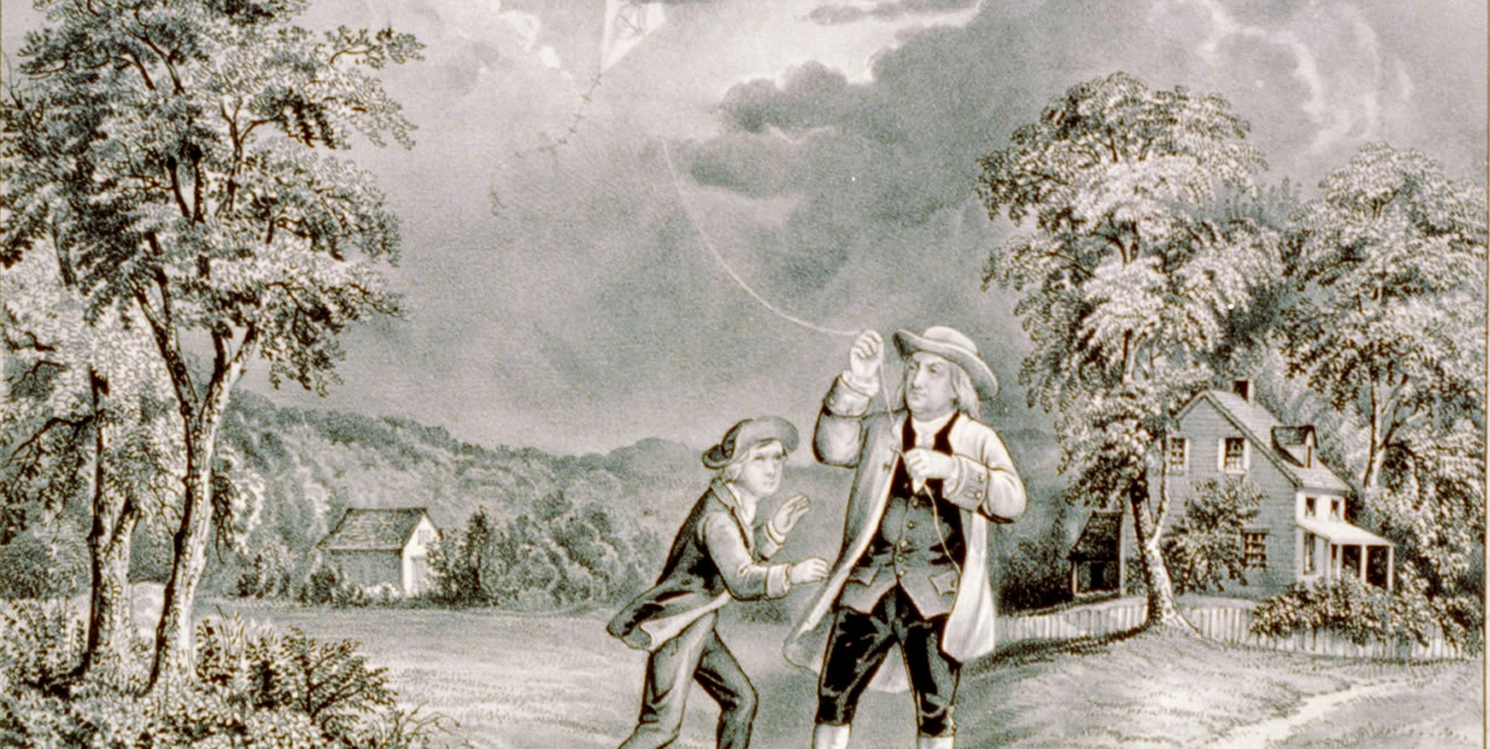
“Franklin’s Experiment,” Currier & Ives, 1876. The Pennsylvania State University.
• Benjamin Franklin first used electricity to play pranks on his loved ones: “Franklin was also, as far as we know, the first person to punk people with electricity. He made a spider out of cork and thread, and ‘animated’ it by suspending it over two electrified wires, so that it swung back and forth between them. Such a spider appears ‘perfectly alive to persons unacquainted,’ Franklin wrote.” (Atlas Obscura)
• Sending conceptual art—including the blood of artists—to the moon. (NPR)
• Premature burial, then and now: “We yearn to mistake death for something else. It doesn’t hold the same mystery it did a century ago. When it arrives, it’s with such biological certainty that to defy the grave seems more a miracle than a tragedy: score one against science, against the onslaught of empirical data. We’re probably, all of us, a little more afraid of dying now, a little less at home in the graveyards of the world. Having decided to keep our distance from death, we share more than ever an ingrained feeling that bodies should be in motion—even, or especially, when they’ve ceased to move.” (Paris Review Daily)
• Are there too many history books written by and about men? (Slate)
• The New York Public Library’s release of nearly 200,000 high-resolution images includes its collection of Green Books, twentieth-century travel guides focused on keeping African Americans safe: “From 1936 to 1966, Victor Green, a postal worker who worked in New Jersey but lived in Harlem, published the directories known today as the Green Book. (The actual titles were variously: The Negro Motorist Green Book, The Negro Travelers’ Green Book, The Travelers’ Green Book.) These listed hotels, restaurants, beauty salons, nightclubs, bars, gas stations, etc. where black travelers would be welcome. In an age of sundown towns, segregation, and lynching, the Green Book became an indispensable tool for safe navigation.” (NYPL)
• The last remaining British communes dedicated to practicing the preaching of novelist Leo Tolstoy. (New Yorker’s Page Turner)